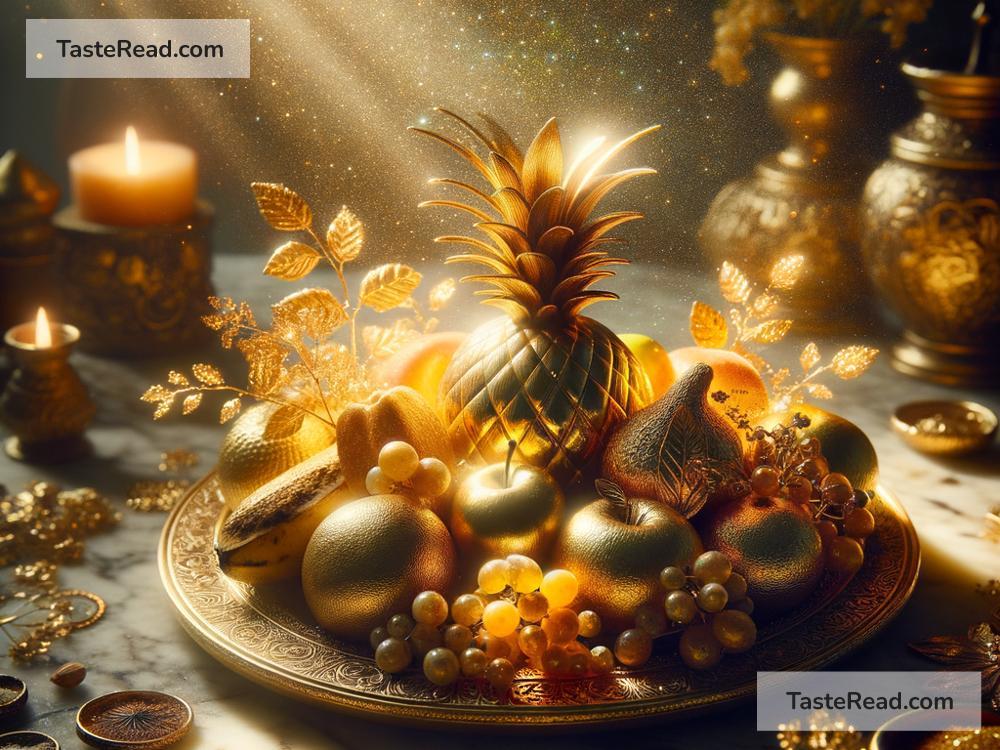Legend of Ambrosia: The Food of Immortality
Throughout history, humans have been fascinated by the idea of immortality—living forever, free from the grip of death. This desire has sparked countless myths and legends in cultures around the world. One of the most famous stories in ancient Greek mythology speaks of “Ambrosia,” a magical food believed to grant immortality to those who consumed it. Simple yet fascinating, the legend of Ambrosia has endured for centuries, captivating our imagination. Let’s explore this myth and see what made Ambrosia so special.
What Is Ambrosia?
Ambrosia was known as the food or nectar of the gods in Greek mythology. The word “Ambrosia” comes from ancient Greek roots that translate to “immortal” or “divine.” It was described as an incredibly delicious, rare substance consumed by the gods of Mount Olympus, the home of the Greek gods. The gods believed that by eating Ambrosia, they could maintain their eternal youth, beauty, and immortality.
In some versions of the myth, Ambrosia was not only a food but also a drink, sometimes equated with nectar, another divine substance. Whether consumed as food or drink, Ambrosia held one key power: it prevented death and granted everlasting life.
Who Could Eat It?
Ambrosia wasn’t meant for humans. It was reserved for the gods, who protected it carefully. Eating Ambrosia was seen as a privilege, and mortals generally had no access to it. However, some stories tell of occasions when mortals came into contact with Ambrosia under special circumstances. These tales often showcase the dangers or consequences of a mortal consuming divine food.
For example, in the myth of Tantalus—a human king who was invited to dine with the gods—Ambrosia came to symbolize greed and arrogance. Tantalus betrayed the gods by stealing Ambrosia to share with humans, hoping to gain their favor. Enraged by his actions, the gods punished Tantalus severely, showing that Ambrosia was meant for the divine alone. This story reminds us of the boundary between humans and gods, highlighting the idea that immortality isn’t something that can be easily earned.
Ambrosia and Its Powers
The most common belief surrounding Ambrosia is that it granted immortality, but its powers were said to go beyond just eternal life. Ambrosia also rejuvenated the gods, keeping them young and strong forever. In addition, it healed wounds and gave energy, ensuring that the gods never grew tired or weak.
The Greek poet Homer, in his famous epics The Iliad and The Odyssey, described Ambrosia in great detail. In The Iliad, Ambrosia is said to have been used not only as food but also as an ointment. When the gods wished to preserve the body of a fallen hero, they rubbed Ambrosia on his corpse to keep it from decaying.
Other writers suggested that Ambrosia had an otherworldly aroma and flavor, unmatched by anything on Earth. Some even believed Ambrosia wasn’t a specific substance but rather a concept symbolizing perfection—something that brought bliss and happiness to those who consumed it.
Ambrosia in Greek Culture
The concept of Ambrosia became an important symbol in ancient Greek culture. It represented immortality, divinity, and the divide between ordinary humans and gods. It also highlighted the Greeks’ fascination with life after death. While humans may be mortal, Greek mythology showed them striving for greatness in life, even if they couldn’t live forever.
Ambrosia also reflected the Greeks’ love for food and feasting. Many rituals and festivals in ancient Greece revolved around food, and Ambrosia became the ultimate representation of the joy and importance of a good meal.
Over time, the idea of Ambrosia extended beyond literal immortality and came to signify anything that was extraordinarily delicious or satisfying. Even in modern times, people may refer to an especially delightful dish as being “like Ambrosia.”
Similar Legends Around the World
The idea of a magical food granting immortality doesn’t belong solely to Greek mythology. Similar legends exist in many cultures. In Hindu mythology, there is “Amrita,” which literally means “nectar of immortality.” Like Ambrosia, Amrita was a divine substance consumed by gods to achieve eternal life. It was said to be produced during the “Churning of the Ocean,” an epic battle between gods and demons.
In Norse mythology, apples from the goddess Idunn’s orchard were thought to grant immortality to the gods. Much like Ambrosia, these apples kept the Norse gods youthful and strong.
These similarities show how universal the idea of immortality is—cultures across the world have dreamed of finding or inventing a substance that could defeat death.
The Legacy of Ambrosia
While we may never find Ambrosia in the real world, its legend lives on as a powerful reminder of humanity’s eternal quest for immortality. It reflects our dreams of transcending human limits, as well as our love for food and storytelling.
Whether Ambrosia was imagined as the ultimate food, drink, or ointment, it remains a masterpiece of mythology—a symbol of divine perfection and the unreachable boundary between gods and mortals. As long as people share stories, the legend of Ambrosia will continue to inspire wonder and curiosity, inviting us to imagine life beyond the limits of time. Could it have really existed, or is it simply a metaphor for our deepest desires? The answer, like Ambrosia itself, is wrapped in mystery.


